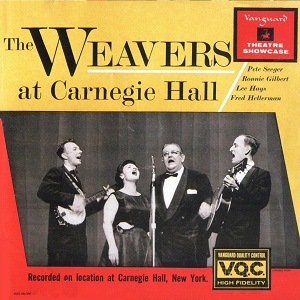External links
- Website for The Mississippi Rag
- Website for Shawnee Press
- Hawley Ades Interview NAMM Oral History Library (2007)
- Find a Grave
Hawley Ades was an American choral arranger, born in Wichita, Kansas on June 25, 1908. He died March 26, 2008, at the age of 99, three months shy of his 100th birthday. [1] He was the son of two professional musicians; choral director Lucius Ades, and concert pianist and teacher Mary Findley Ades.
Hawley Ades graduated from Rutgers College in 1929. He was hired as a staff arranger for Irving Berlin's publishing company, where from 1932 to 1936 he made hundreds of stock arrangements for the leading dance bands of the day, including special arrangements for Raymond Scott and Paul Whiteman.
In 1937, he was hired as a choral arranger for Fred Waring's very popular group, The Pennsylvanians, and was a mainstay for the next 38 years. Fred Waring often introduced Ades on concert tours by saying that "more people play and sing his arrangements than those of any other arranger in history.”
He became one of the most prolific choral arrangers of the 20th Century. His arrangements - published by Waring's Shawnee Press - are still very popular throughout the US, especially with high school and community choirs.
In 1966, Ades authored the textbook “Choral Arranging” [2] - a standard in the field. He retired from the Waring organization in 1975, but continued to write and analyze music almost to his death.
One of his last known arrangements was for lifelong family friend and professional musician and composer Roger Rossi. Mr. Rossi remembers, “Hawley Ades and I were friends for fifty-five years. We both took piano lessons from his mother, Mary Findley Ades. I’ve had a warm and lasting friendship with his entire family. Naturally, upon completing my Ave Maria, I sent it to Hawley." Rossi went on to say that Ades' quickly replied, "the piece is absolutely beautiful, and I’d like to write an SATB arrangement for it." To that Rossi stated, "I was shocked he’d do that. While still mentally sharp, he was 95 years old, and half blind! He had to use a magnifying aid to see his notes while scoring. Gradually, note-by-note he plodded away until it was done. It was a chore that exemplified the man’s great work ethics, congeniality, and talents all the way through to his later years. He did it for me, and I’m so proud of him. Unfortunately, he never heard his own arrangement. I’m sure he would’ve been thrilled like I was. The world is a better place now, because Hawley Ades was here.” [3]
Hawley Ades nephew, author Tom Moreland, a lawyer in New York City, wrote two printed articles in The Mississippi Rag titled "Hawley Ades: Musical Memories - I and II" (August and September 2008).

Felix Albert Pappalardi Jr. was an American music producer, songwriter, vocalist, and bassist. He is best known as the bassist and co-lead vocalist of the band Mountain, whose song "Mississippi Queen" peaked at number 21 on the Billboard Hot 100 and became a classic rock radio staple.

Sir John Milford Rutter is an English composer, conductor, editor, arranger, and record producer, mainly of choral music.

Fredrick Malcolm Waring Sr. was an American musician, bandleader, choral director, and radio and television personality, sometimes referred to as "America's Singing Master" and "The Man Who Taught America How to Sing". He was also a promoter, financial backer and eponym of the Waring Blendor, the first modern electric blender on the market.

"Bring the Boys Back Home" is a song by the English rock band Pink Floyd released on their 1979 album, The Wall. The song was released as a B-side on the single, "When the Tigers Broke Free".

Russell Garcia, QSM was an American composer and arranger who wrote a wide variety of music for screen, stage and broadcast.
Harry Moses Simeone was an American music arranger, conductor and composer who popularized the Christmas song "The Little Drummer Boy", for which he received co-writing credit.

Mervyn Edwin Warren is an American film composer, record producer, conductor, arranger, lyricist, songwriter, pianist, and vocalist. Warren is a five-time Grammy Award winner and a 10-time Grammy Award nominee. Warren has written the underscore and songs for many feature and television films. He has also written arrangements in a variety of musical styles for producers Quincy Jones, David Foster, Arif Mardin, and dozens of popular recording artists, including extensive work on Jones' Back on the Block,Q's Jook Joint, and Q: Soul Bossa Nostra.
Herbert Hughes was an Irish composer, music critic and a collector and arranger of Irish folksongs. He was the father of Spike Hughes.
Shawnee Press, Inc., was an independent print and recorded music publisher and for a time, the largest educational music publisher in the world. The Company published several music types including choral, vocal, keyboard, handbell, instrumental, and classroom in a variety of styles. The Company added sacred music offerings with the acquisition of Harold Flammer, Inc., followed by launching GlorySound, an imprint targeted to the growing contemporary Christian market.
Philip Lawson is a British choral conductor, composer and arranger. For 18 years he was a baritone with the King's Singers and the group's principal arranger for the last fifteen years of that period. In 2009 the group's album "Simple Gifts", on which Lawson arranged 10 out of 15 tracks, won the Grammy award for "Best Classical Crossover Album". In February 2012, he left the King's Singers to concentrate on his writing career.
Davide Rossi is an Italian violinist, string arranger, orchestrator, songwriter, composer and conductor, perhaps best known for having been the electric violinist and multi-instrumentalist for the British electronic music duo Goldfrapp from 2000 until 2013, and for his large contribution of electric violin parts and for most of the string arrangements on all Coldplay's albums since Viva la Vida or Death and All His Friends,.

The Weavers at Carnegie Hall (1957) is the second album by the Weavers. The concert was recorded live at Carnegie Hall in New York City on Christmas Eve 1955. At the time the concert was a comeback for the group following the inclusion of the group on the entertainment industry blacklist. The album peaked at number 24 on the Billboard Top 200 in 1961.
Dale Warland is an American conductor, composer, founder of the Grammy-nominated Dale Warland Singers, scholar, teacher, choral consultant, and renowned champion of contemporary choral composers. Warland is one of only two choral conductors inducted into the American Classical Music Hall of Fame.
"I'm Alabama Bound" is a ragtime melody composed by Robert Hoffman in 1909. Hoffman dedicated it to an M. T. Scarlata. The cover of its first edition, published by Robert Ebberman, New Orleans, 1909, advertises the music as "Also Known As The Alabama Blues" which has led some to suspect it of being one of the first blues songs. However, as written, it is an up-tempo rag with no associated lyrics. The song has been recorded numerous times in different styles—both written and in sound recordings—with a number of different sets of lyrics.
Robert Houston Bright was a composer of American music, known primarily for his choral works. The best-known of these is an original spiritual "I Hear a Voice A-Prayin'," but he wrote dozens of highly regarded pieces over the course of his career, including a number of instrumental compositions. Bright was, among his peers, well known and respected as a composer, choral director, and professor. He spent his entire academic career in the Music Department of West Texas State College.

"Nobody Knows the Trouble I've Seen" is an African-American spiritual song that originated during the period of slavery but was not published until 1867. The song is well known and many cover versions of it have been recorded by artists such as Marian Anderson, Lena Horne, Louis Armstrong, Harry James, Paul Robeson, and Sam Cooke among others.
Roger Rossi is an American pianist, accompanist, vocalist, bandleader, published author and composer born Roger Rossitto, in Brooklyn, New York. He is the son of concert violinist Vincent Rossitto, who graduated from the Royal Conservatory of Bellini in Palermo, Sicily and performed on many of the great stages of Italy including Teatro Massimo.
Victor Clarence Schoen was an American bandleader, arranger, and composer whose career spanned from the 1930s until his death in 2000. He furnished music for some of the most successful persons in show business including Benny Goodman, Glenn Miller, Count Basie, Tommy Dorsey, Harry James, Les Brown, Woody Herman, Gene Krupa, George Shearing, Jimmie Lunceford, Ray McKinley, Benny Carter, Louis Prima, Russ Morgan, Guy Lombardo, Carmen Cavallaro, Carmen Miranda, Gordon Jenkins, Joe Venuti, Victor Young, Arthur Fiedler and the Boston Pops, and his own The Vic Schoen Orchestra.
Gertrud Rittmann was a German Jewish composer, musical director, arranger and orchestrator who lived and worked for much of her life in the United States. Her career particularly flourished with major successes in Broadway theater.

Symphonic Legends – Music from Nintendo was a symphonic tribute concert held in Cologne, Germany on 23 September 2010 by the WDR Rundfunkorchester Köln, featuring video game music from Japanese game developer Nintendo. The concert featured symphonic arrangements found in some of Nintendo's biggest game series, such as Legend of Zelda, Super Mario Bros., Pikmin, F-Zero and Donkey Kong. The concert was produced and directed by Thomas Böcker, with arrangements provided by Finnish composers and musicians Jonne Valtonen and Roger Wanamo, as well as Japanese game music composers Masashi Hamauzu, Hayato Matsuo, Shiro Hamaguchi and German film composer Torsten Rasch.